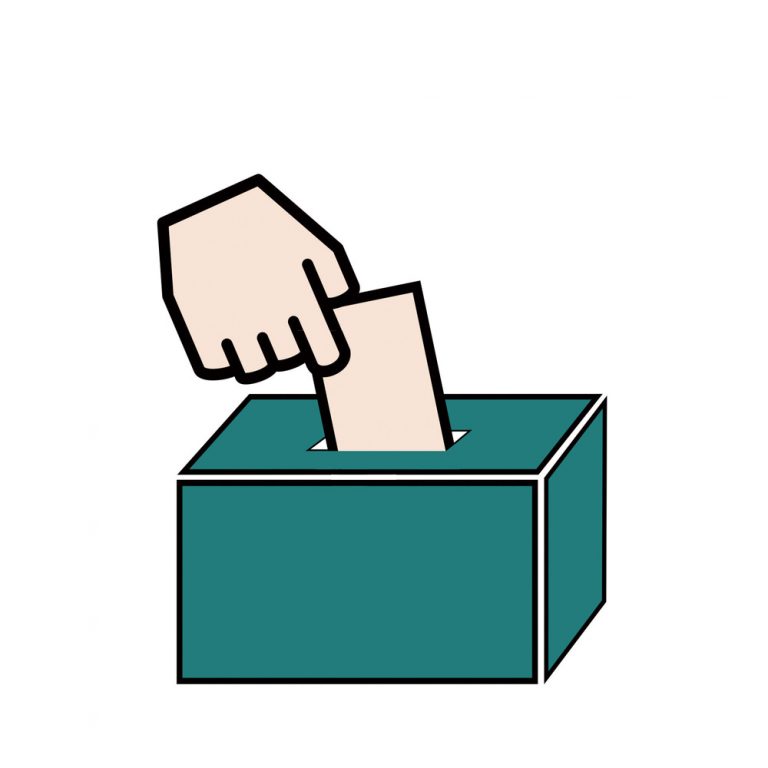
Rachel Sun
The foundation of the United States’ governing body is best demonstrated as “a government of the people, by the people [and] for the people.” However, certain parts of our elections are entirely outdated, making it evident that our democracy is not as representative as we’d like to think it is. That’s partially due to how our presidential elections are set up, the process of registration, the electoral college and the outdated method of voting on a Tuesday.
Some of these practices were written into the Constitution and were necessary in their time. But in the 21st century, they’ve become bureaucratic nuisances that could easily be fixed through amendments.
One of the many reasons why our current voting system harms the representation of the people is the extensive election cycle. Last October, vice president Joe Biden released a statement announcing that he wouldn’t be campaigning in the 2016 presidential election. He claimed it was too late for him to put together a winning campaign. This was 384 days before the general election.
On the other hand, that same month, Canada ended their longest campaign season: a whopping 78 days. Mexico’s campaign season starts 90 days before election day, with a “pre-campaign” period of 60 days when candidates fight for the nomination. So why are our presidential elections so lengthy?
One of the more all-encompassing explanations is that presidential candidates require millions of dollars in order to run a decent campaign. As the primary season begins to creep up earlier and earlier, candidates need funds to advertise their name for, say, a year and a half. This essentially gives private corporations the ability to contribute much more money in the political process.
As former Democratic presidential candidate Bernie Sanders said in a U.S. News article, “it makes it harder and harder for the voice of the average American to be heard.” In order to change this and give the vote back to the people, the Supreme Court would have to overturn Citizen’s United v. FEC, and limit the amount of contributions per individual.
The electoral college also puts another spin on our representative government. When we cast our votes, we are not directly voting for the president. We are casting our votes for the delegate who will later cast the electoral vote for the president. The problem emerges when the popular vote is overruled by the electoral vote. In the 2000 election, outrage broke out when Al Gore, who won the popular vote, lost to George W. Bush, who won the electoral college. Due to the nature of the electoral college, the majority was not listened to.
The electoral college is written into our Constitution, but an amendment would overturn it. Despite the frustration and outrage from the voters, nothing has been done. If the electoral college was not eliminated due to the chaos of the 2000 election, it probably never will be.
Voter registration is also another obstacle in our system. In most democracies, registration is automatic. There isn’t a separate application or process to go through once you reach the voting age. In the United States, however, you’re required to register to vote, which is absolutely absurd. The government has our existence filed; do they not know when its citizens turn the legal age? Are they not capable of automatically registering citizens? Do they want the voting process to be harder because it is not difficult enough?
Lastly, there is the fact that Election Day is held on a Tuesday. Most democracies vote on the weekend because that’s the most logical step to take. But before we assess this now-arbitrary voting date, we should realize that Tuesday made sense in the mid-1800’s when it was first enforced. Many Americans lived on farms and the majority observed Sabbath on Sundays.
Voting on Tuesday meant that the people could get to the polls from farms on Monday, vote on Tuesday, and go back home on Wednesday. But the majority of the population now doesn’t observe Sabbath nor work on farms, so why not place Election Day on the weekend? Holding Election Day on a Tuesday prevents the working class from going out to vote after a day of labor. To be fair, policies in the majority of states allow workers two hours leave to vote, but only under certain conditions. In California, workers have a maximum of two hours, including paid leave.
Certain requirements, such as prior notice to the employer, still hamper voters. Voting is a right all citizens have and they should not be confined thus. Lower turnout is still one of the byproducts of voting on a Tuesday. If higher turnouts are what you’re looking for, let the people vote on the weekend.
Our voting system is flawed and chaotic and there doesn’t seem to be a way to fix it. The public has repeatedly expressed outrage because of our system’s many flawed practices, but nothing has been done to assess our concerns. Maybe it’s my pessimistic side talking, but there may be no choice but to continue with our broken voting system.










